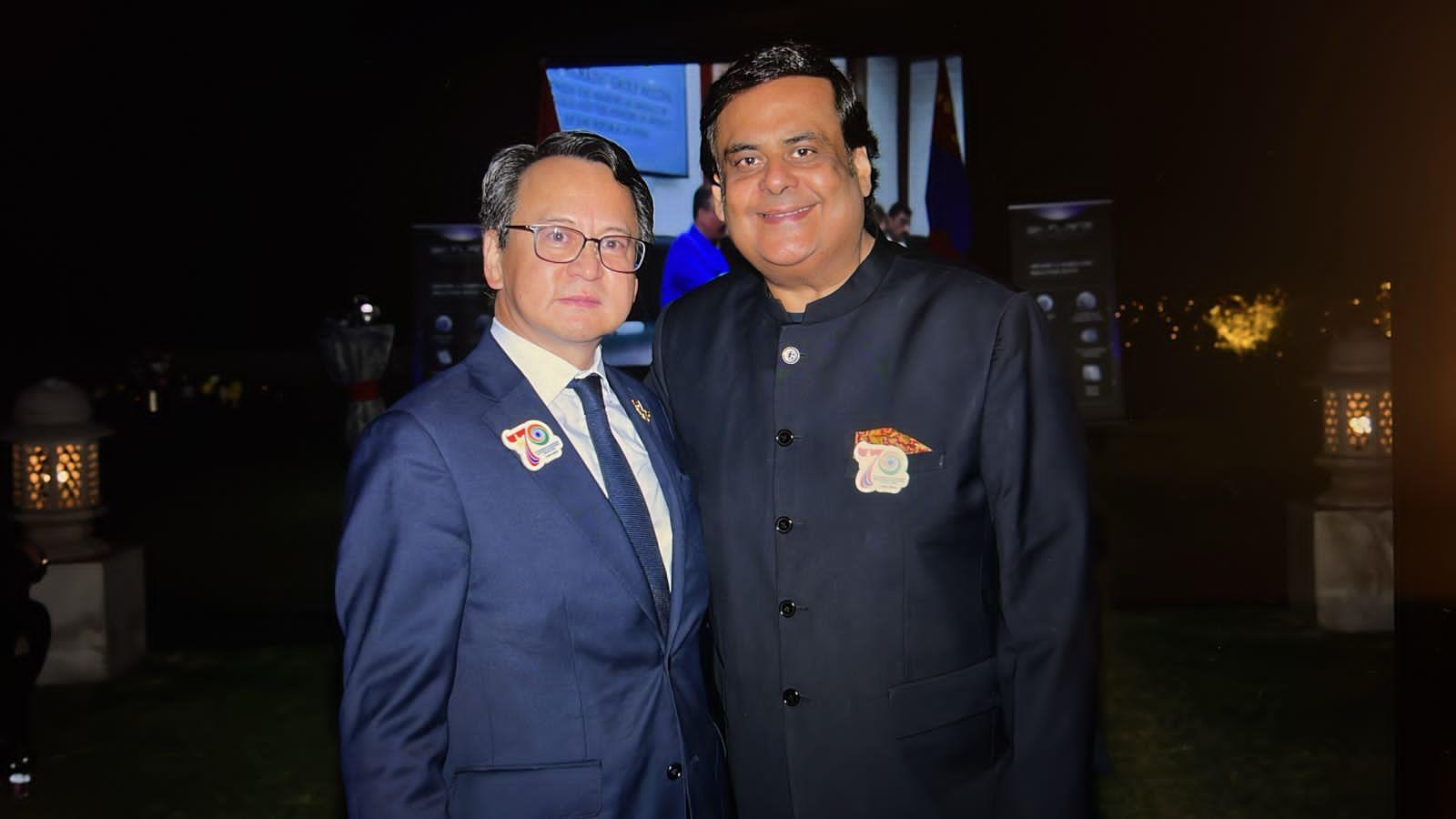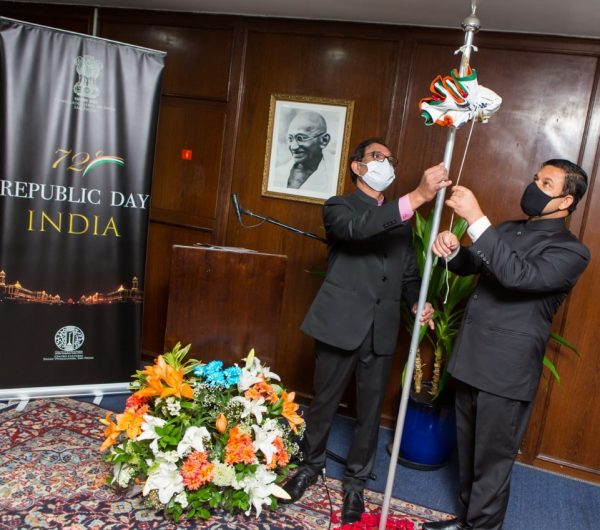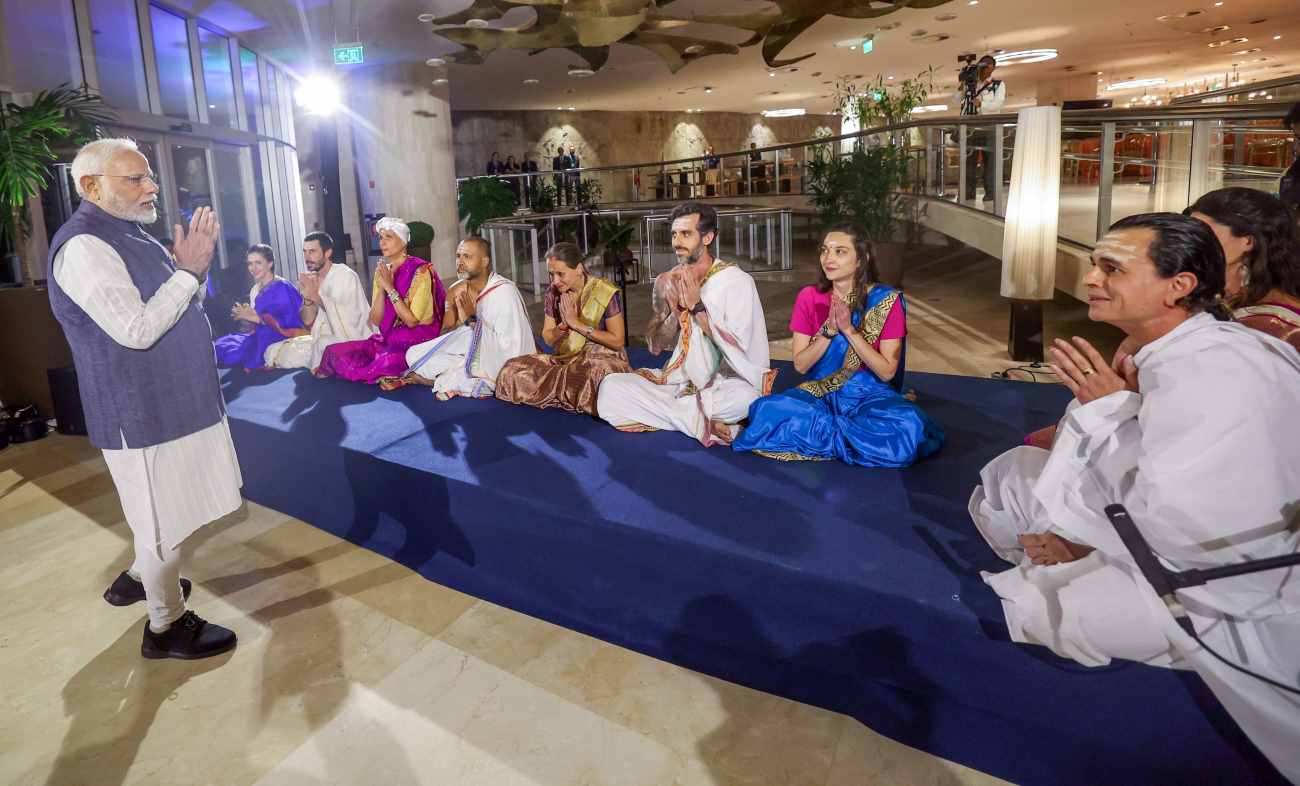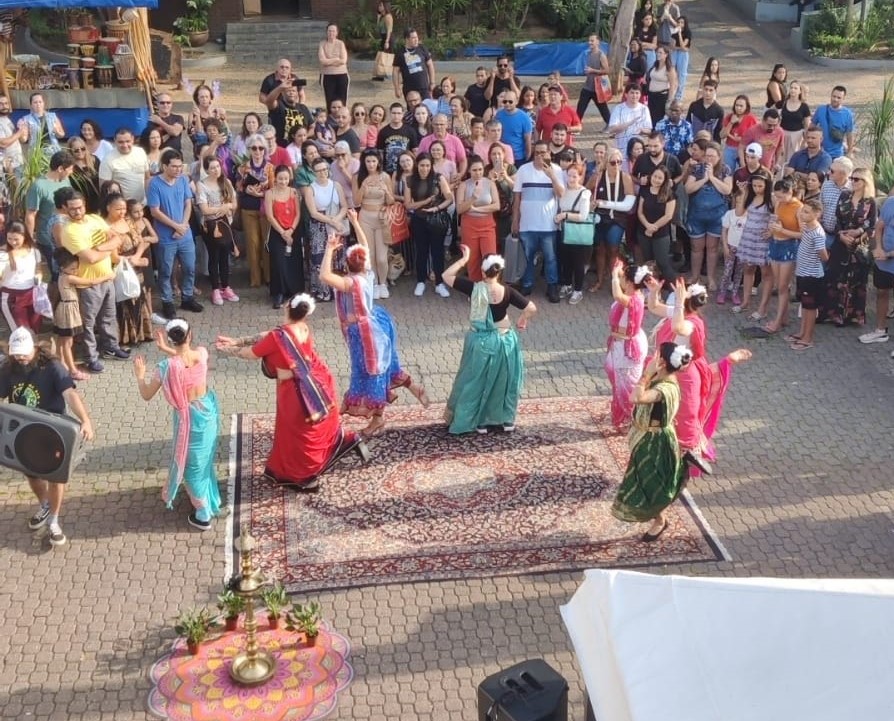Indian Consulate in Sao Paulo and Swami Vivekanand Cultural Centre provide support to the virtual gathering; Live musical concert by Bollywood Gharana group widely appreciated by Indians and Brazilians
Florencia Costa
Sao Paulo
Hope has its own light and the Indian community in Brazil tried to light the clay lamps that symbolize this feeling at the online Diwali event. The Festival of Lights, which lasts five days, is the biggest celebration in India, symbolizing the victory of good over evil.
The Brazilian Diwali was organized on Saturday, November 21, by the Indian Association of São Paulo (IASP) in collaborations with the Swami Vivekananda Cultural Center (SVCC) and Consulate General of India in São Paulo.
The music gave a special touch to the festivity this year, with the participation of the Bollywood Gharana Group, which operates from Mumbai and New York, and plays the fusion of sounds from Bollywood films and classical Indian songs. Their musical concert was arranged by Radio Zindagi Promoter Sunil Hali and Sunny Thakkar of Sneha Arts from New York.
Inaugurating the event, Amit K Mishra, Indian consul-general in São Paulo, pointed out that this year, due to the Coronavirus Pandemic, the technology helped to organize a safe Diwali, over the internet, with the participation of artists from Mumbai, Madrid and São Paulo.
“This is the biggest festival in India, equivalent to Christmas for Brazilians. We celebrate the power of light over darkness, said Puja Kaushik, director of the Swami Vivekananda Cultural Center. The ceremony, organized at and broadcast from the headquarters of the Swami Vivekananda Cultural Center in São Paulo, was attended by a few members of the Indian community in São Paulo, all wearing masks, such as Rakesh Kanojia, vice president of the São Paulo Association of Indians, and Vijay Bavaskar, the entity’s cultural director. “We always celebrate Diwali in style, but this year, for security, we organize online. However, the feeling is the same: of union,” said Rakesh.
“May the light conquer fear and bring hope and happiness,” wished Vijay, owner of the restaurant Samosa & Company. In addition, chef Kanchana Kanojia started the ceremony by lighting the lamps in a prayer in honor of the goddess Lakshmi, of prosperity.
Meanwhile, musician and singer Ratnabali Adikari, who also lives in São Paulo, sang mantras for Lakshmi, from scriptures like Upanishads, saying that “the truth wins the lie, that the light wins the darkness, that immortality wins the death”.
Gyanshree Karahe, Indian classical dance teacher of Kathak, then performed with the dance “Devi Stuti”, which reveres Lakshmi. Then it was the turn of Miriam Lamas Baiak, a Brazilian dancer of Bharatanatyam who lives in Madrid. She performed the dance “Durgue”, in honor of the goddess Durga.
Indian dance teacher Iara Ananda, from the first Bollywood dance group in Brazil (Bollywood Brazil) presented a mix of dances and in the end called on people, to dance with her, at their homes. In her last dance, Iara was joined by her mother Patricia Romano (who is also a Bharatanatyam dance teacher), Iara’s husband, Heitor, and their 3-year-old daughter Nina.
Then it was the turn of sisters Juily and Disha Malani, daughters of an Indian father and a Brazilian mother. The two performed Bhangra and Bollywood dances.
After the dances, it was the turn of poetry at this event. Shelly Bhoil, an Indian who lives in São Paulo and is a writer & poet, recited a poem about “The Lights of Hope”.
Then Abhijit Pohankar, who belongs to the fourth generation of family of musicians, performed at the event from his home in Mumbai, as organizer of the Bollywood Gharana Group. The group made a special presentation for Diwali 2020, with the participation of Abhijit himself, who played the harmonium, Avanti Patel, who sang Bollywood songs, Gandhar Deshpande, who sang classical songs, and Saurabh Joshi, who played guitar, in addition to Akshay Jadhav, on percussion. To begin with, they sang and played songs from Asha Bhosle’s album “Di Padosi hai”, released in 1987 and other Bollywood fusion songs with classics.
The 30-minute long musical concert was a huge success with the crowd in the virtual event. As the Bollywood Gharana belted out some of the most popular Bollywood numbers mixed with the strains of clssical ragas, there was a large number of comments from the audience, many of them Brazilians who have not heard the music of this level before.
The popular group, which has been performing in India and US, expressed their gratitude to the Indian Association, SVCC and Indian Consulate in Sao Paulo, for the “opportunity to perform in Brazil”.
Earlier, a detailed explanation of Diwali was given by Amitabh Ranjan Singh, who recalled the fundamental role of Prince Rama and his wife Sita in this celebration. Rama, a character in the Ramaiana epic, is the 7th incarnation of the Hindu god Vishnu (preservation). He explained that the festival celebrates Rama’s return from a 14-year exile in the forest, after defeating the demon Ravana. “Indians light rows of diyas, or clay lamps, which represent the victory of wisdom over ignorance. We also worship the goddess Lakshmi. This date is believed to mark his marriage to the god Vishnu,” he said.
The festival always falls in the months of October or November, depending on the Hindu lunar calendar. This year, the main celebration day fell on November 14th.
Indian families leave their doors and windows open and light their homes with lamps to facilitate Laskhmi’s entry into their homes, that is, prosperity. The entrances to the houses are also decorated with drawings on the floors made with colored powders, flower petals and rice. These drawings are called Rangolis. People wear new clothes to thank Lakshmi for providing good luck to everyone.
On the first day of celebration, called Dhanteras, Indians usually clean houses and sometimes even renovate or paint them, in addition to buying gold and silver objects and items for the kitchen. On the second day, people decorate the houses and on the third, the big day, families gather around tables full of delicious dishes and many sweets, in addition to performing puja (prayers) for Lakshmi, the goddess of prosperity, and also for Ganesha (elephant-headed god who represents wisdom) and Kuber, deity who symbolizes wealth.
On the fourth day, called Padwa, the new Hindu year is celebrated: friends and family visit each other and exchange gifts. On the fifth and final day, called Bhai-Dooj, the relationship between brothers and sisters is celebrated.
“In these difficult times, those who give us hope are the scientists and doctors, but artists, musicians and dancers can also offer us hope and show us how beautiful life can be,” said Shobhan Saxena, president of the Association of Indians.
The IASP president thanked Amit K Mishra, Puja Kaushik, Consulate of India, SVCC, IASP board members for the support to the event. He also thanked all artists and groups for their memorable performances.
The Association president also thanked Sunil Hali, promoter of Radio Zindagi, for taking the Bollywood Gharana group to Brazil.


























